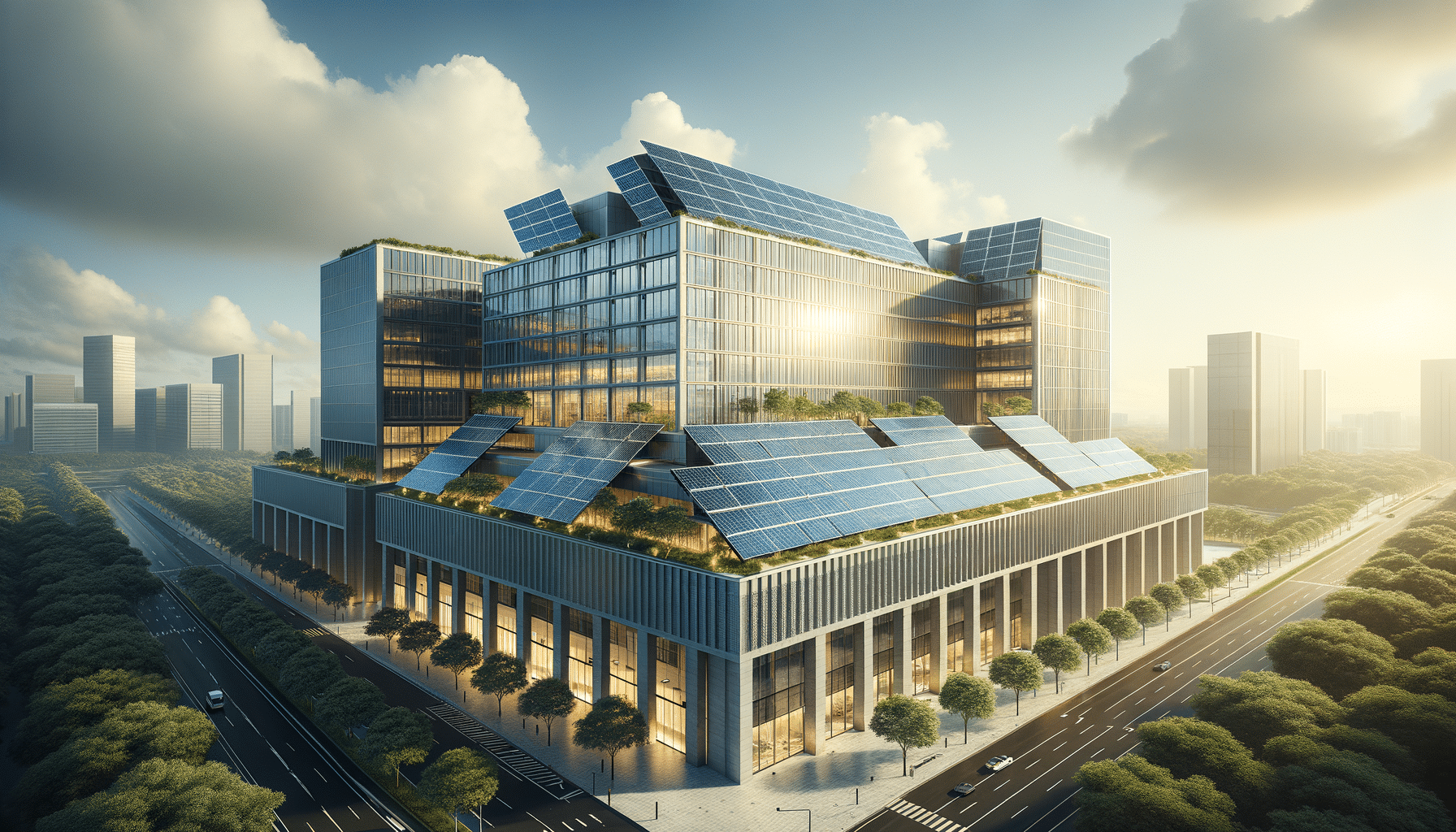
Explore Commercial Solar Energy Solutions for Businesses in 2025
Introduction to Commercial Solar Energy
As businesses around the globe strive for sustainable practices, solar energy emerges as a pivotal component in reducing carbon footprints and operational costs. Solar systems and panels are not only environmentally friendly but also economically viable, providing businesses with an opportunity to harness renewable energy efficiently. In 2025, the landscape of commercial solar energy solutions is set to evolve, offering more advanced and cost-effective options for businesses. This article delves into the various aspects of commercial solar energy, highlighting its importance and exploring the latest trends in solar technology.
The Economic Benefits of Solar Systems for Businesses
Investing in solar systems offers a multitude of economic benefits for businesses. The initial cost of installation can be significant; however, the long-term savings on energy bills often justify the investment. Businesses can expect to see a reduction in their electricity costs, potentially saving thousands of dollars annually. Moreover, many governments offer incentives, such as tax credits and rebates, to encourage the adoption of solar energy, further enhancing the financial appeal. Additionally, businesses that generate surplus energy can sell it back to the grid, creating an additional revenue stream.
Furthermore, solar panels require minimal maintenance, leading to lower operational costs compared to traditional energy sources. The durability and longevity of solar panels ensure that businesses can enjoy a reliable energy supply for decades. This stability in energy costs allows businesses to plan their finances more effectively and allocate resources to other growth areas.
Technological Advancements in Solar Panels
The solar panel industry is witnessing rapid technological advancements, making solar energy more accessible and efficient for businesses. Innovations in photovoltaic technology have led to the development of panels with higher energy conversion rates, allowing businesses to generate more power from smaller installations. This is particularly beneficial for urban businesses with limited roof space.
Moreover, the integration of smart technology into solar systems enables real-time monitoring and management of energy production and consumption. Businesses can optimize their energy usage, ensuring maximum efficiency and cost-effectiveness. The use of battery storage systems has also advanced, allowing businesses to store solar energy for use during peak demand periods or when sunlight is insufficient.
These technological advancements not only contribute to the efficiency of solar panels but also enhance their aesthetic appeal, making them a more attractive option for businesses concerned about their building’s visual impact.
Environmental Impact of Commercial Solar Energy
The environmental benefits of solar energy are undeniable. By transitioning to solar energy, businesses significantly reduce their carbon emissions, contributing to the fight against climate change. Solar panels produce clean energy with no direct emissions, unlike fossil fuels, which release harmful pollutants into the atmosphere.
Adopting solar energy also reduces dependence on non-renewable energy sources, conserving natural resources for future generations. Businesses that prioritize sustainability not only contribute positively to the environment but also enhance their brand image, as consumers increasingly favor companies committed to eco-friendly practices.
Furthermore, solar energy systems can be integrated into existing buildings without disrupting the natural environment, preserving biodiversity and reducing the ecological footprint of business operations.
Future Trends in Commercial Solar Energy
As we move into 2025, several trends are shaping the future of commercial solar energy. The rise of decentralized energy systems is one such trend, where businesses generate and manage their own energy, reducing reliance on the centralized grid. This approach not only increases energy independence but also enhances resilience against power outages.
Another emerging trend is the adoption of integrated solar solutions, where solar panels are combined with other renewable technologies, such as wind or geothermal energy, to create hybrid systems. These solutions offer increased energy reliability and efficiency, catering to businesses with diverse energy needs.
Finally, the development of transparent solar panels is gaining traction. These panels can be integrated into windows and facades, allowing businesses to harness solar energy without compromising on natural light and aesthetics. This innovation opens new possibilities for urban businesses, expanding the potential for solar energy integration in commercial buildings.
Conclusion: A Sustainable Future for Businesses
In conclusion, commercial solar energy solutions present a compelling case for businesses seeking to improve sustainability and reduce operational costs. With ongoing technological advancements and supportive government policies, solar energy is becoming an increasingly viable option for businesses of all sizes. By embracing solar energy, businesses not only gain economic advantages but also contribute positively to the environment, aligning with the global shift towards sustainable development. As we look towards the future, the integration of solar energy into commercial operations will undoubtedly play a key role in achieving a greener, more sustainable world.


